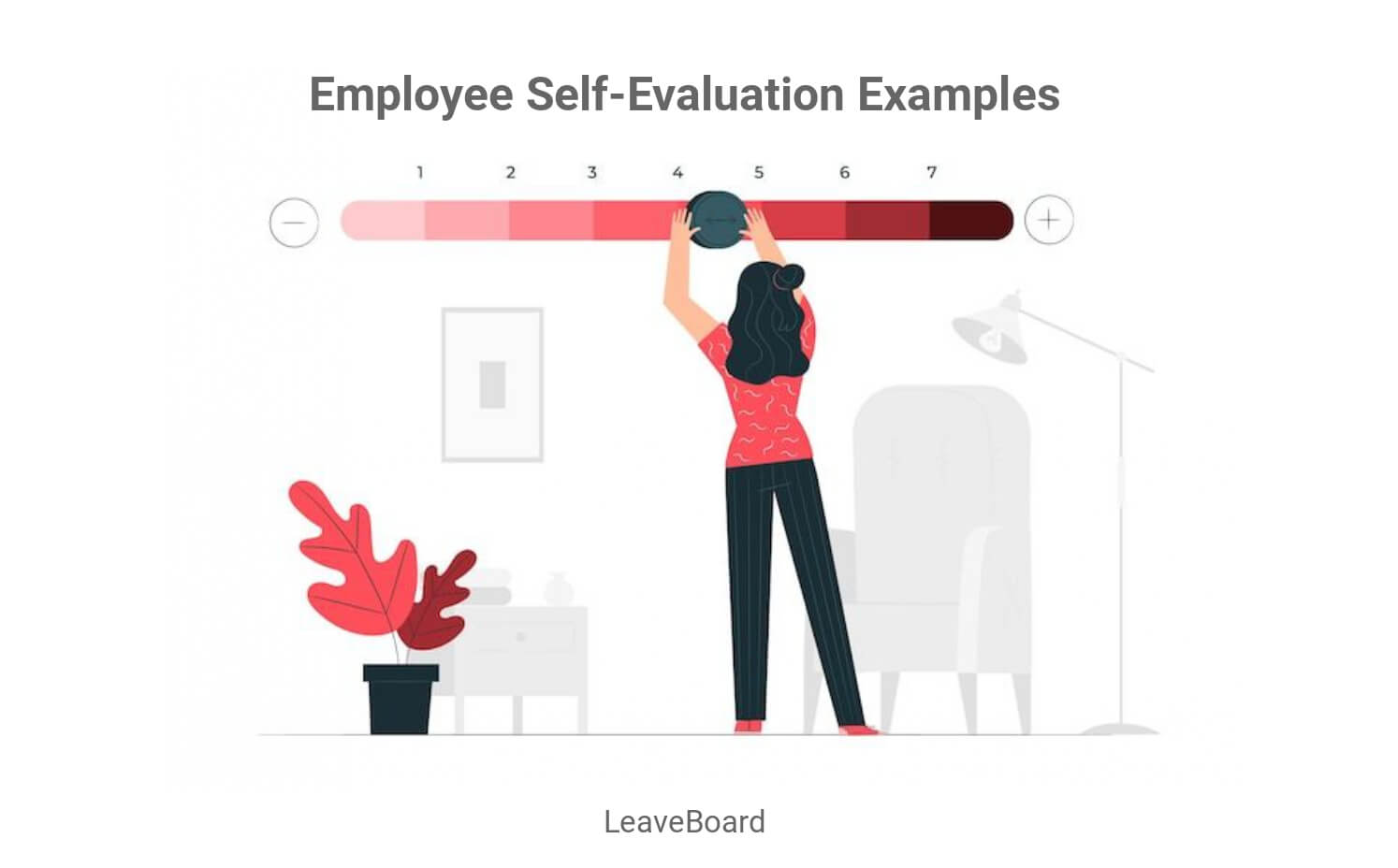Examples of Self-Assessment

Self-assessments can take various forms depending on the context and purpose. Here are some examples of self-assessment tools and formats used in different settings:
Performance Review Self-Assessment: In a workplace performance review, employees may be asked to complete a self-assessment questionnaire or form. This may include rating their performance against specific competencies or goals, providing examples of achievements, and identifying areas for development.
360-Degree Feedback Self-Assessment: In a 360-degree feedback process, individuals receive feedback from multiple sources, including managers, peers, subordinates, and other stakeholders. As part of this process, individuals may complete a self-assessment survey to evaluate their own performance and behaviors.
Competency Assessment: A competency assessment involves evaluating an individual's proficiency in specific skills or competencies required for their role. Individuals may complete a self-assessment questionnaire or checklist rating their level of competency in various areas, such as communication, leadership, problem-solving, or technical skills.
Personality Assessment: Personality assessments, such as the Myers-Briggs Type Indicator (MBTI) or the Big Five personality traits, can help individuals gain insights into their personality preferences, strengths, and tendencies. Individuals may complete a self-assessment questionnaire to identify their personality type and understand how it influences their behavior and interactions.
Career Development Self-Assessment: In career development planning, individuals may assess their skills, interests, values, and career aspirations to identify potential career paths and development opportunities. This may involve completing self-assessment exercises, such as skills assessments, interest inventories, or values clarification exercises.
Educational Self-Assessment: In an educational setting, students may perform self-assessments to evaluate their academic progress, learning styles, study habits, and areas for improvement. This may include self-assessment quizzes, reflective journals, learning style inventories, or peer feedback exercises.
Health and Wellness Self-Assessment: Individuals may conduct self-assessments to evaluate their physical health, mental well-being, and lifestyle habits. This may involve completing health risk assessments, wellness questionnaires, or self-assessment tools related to stress management, nutrition, exercise, or sleep hygiene.
Creative Self-Assessment: Artists, writers, musicians, and other creative professionals may perform self-assessments to evaluate their creative work and artistic development. This may involve reflecting on their artistic process, setting creative goals, and critiquing their own work to identify strengths and areas for growth.
These are just a few examples of self-assessment tools and formats used in various contexts. Self-assessments provide individuals with opportunities for self-reflection, self-awareness, and personal development, enabling them to identify strengths, areas for improvement, and goals for growth and success.
Thank you,